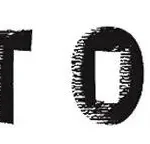CAPE MAY — Taproom owners in this state just let out a collective sigh.
Their relief comes from a New Jersey Supreme Court decision on May 7 that bar owners cannot be held liable for DWI accidents that occur involving drivers who were not served alcohol at their establishments.
The top court reversed an Appellate Division ruling that found the C-View Inn at 1380 Washington St., Cape May liable for death of James Allen Hamby, who was a passenger in a car driven by an intoxicated Frederick Nesbitt III even though Nesbitt was not served alcohol at the C-View.
On Sept. 3, 2003, Hamby, Nesbitt and three others went to the C View Inn for the bar’s popular Wing Night. Only Nesbitt was under 21 years of age.
The group had been drinking prior to entering the C-View having previously drank from a 12-pack of beer and pint of rum purchased from the Seaville Tavern. Later, at the C-View, they ordered pitchers of beer at their table, but Nesbitt was only served Cokes. According to court documents, Hamby sneaked the pint of rum inside his pocket, and slipped rum into Nesbitt’s soda glass under the table.
Sometime after leaving the C-View, Nesbitt drove into a guardrail and rolled over, killing Hamby. Nesbitt was thrown through the car’s back window. Neither were wearing seatbelts. Nesbitt’s blood alcohol level was more than twice the legal limit at the time of the crash.
Nesbitt pled guilty to second-degree vehicular homicide and DWI. He was sentenced to a five-year prison term. According to the state Department of Corrections, Nesbitt served time from May 5, 2004 through July 31, 2008. He was released from Mountainview Youth Correctional Facility.
Hamby’s mother, Kathleen Bauer, filed a complaint against Nesbitt, his mother and the C-View.
The complaint’s count against the bar alleged that the Inn committed common-law negligence and violated the Dram Shop Act by serving the underage Nesbitt alcohol when he was visibly intoxicated or allowing him to consume alcohol in his clearly impaired condition, proximately causing Hamby’s death. The complaint does not allege that the Inn acted negligently or violated the Dram Shop Act by serving Hamby alcohol when he was visibly intoxicated.
The original trial court decision dismissed the claims against the C-View because there were no witnesses or facts to support the argument that Nesbitt drank alcohol served to the table by the Inn’s employees. The trial court held also that even if Nesbitt had consumed alcohol secreted into the bar, the Inn could not be held liable.
Hamby’s mother appealed the decision.
According to court documents, the appeals panel sided with Hamby’s mother finding that the Inn served alcohol to a visibly intoxicated Hamby, who because of his impaired state got into a car with an intoxicated driver. The appellate judges also found that the Inn could be liable for negligently supervising Nesbitt who, based on the expert’s report, would have been showing signs of intoxication at the Inn.
Although the court found that the bar could not be held liable for Hamby’s acts in secretly spiking Nesbitt’s Coke, it determined that the C-View had a duty to protect Nesbitt from the foreseeable risk of injury to himself and others by insuring that he did not drive while intoxicated.
Why did the Supreme Court overrule the appeals court?
After hearing arguments on Dec. 2 last year, the top court said that a complaint cannot be raised for the first time in an appellate court opinion. It said that Bauer did not pursue the theory that the bar negligently served Hamby alcohol while he was visibly intoxicated so the appeals court wrongly used that as a basis of their decision.
Also, it said that the state Dram Shop Act provides that a licensed server “shall be deemed to have been negligent only when the server served a visibly intoxicated person, or served a minor.” Since the C-View never served Nesbitt, it was not liable for his actions.
According to Justice Albin, who wrote the opinion for a unanimous court, Bauer’s expert engaged in speculation by concluding that Nesbitt would have shown signs of intoxication before he left the bar.
“In this case, Nesbitt left the Inn on his own power; he was not stumbling or falling down and did not give any indication that he would be an imminent menace once he left the premises,” the Supreme Court opinion stated.
“Because the Inn did not serve alcohol or allow alcohol to be served to Nesbitt, under the Dram Shop Act it had no duty to monitor Nesbitt to ensure that he was not intoxicated. We therefore reverse the Appellate Division and reinstate the trial court’s summary-judgment dismissal of plaintiff’s negligent- supervision cause of action against the Inn.”
Bauer’s attorney Rudolf Westmorland, however, noted that the court did not exclude suing bars for serving people who then make bad decisions by getting into cars with intoxicated drivers. He just said they dismissed this case because that argument was not pursued in the original trial case.
“I think the court made a courageous decision by leaving it open,” Westmorland said. “Intoxicated passengers involved in accidents can now sue the bar directly, rather than the driver.”
The court also found that state laws do not require bars to monitor a person to whom it did not serve alcohol, even if that person was intoxicated.
“Permitting a negligent-supervision cause of action to proceed in this case would fly in the face of the liability limits that the Legislature put in place in the Dram Shop Act and would impose on alcoholic beverage servers the duty to monitor every guest, including those to whom no alcohol was served, for signs of possible intoxication,” court documents stated.
This story was first published at capemaycountyherald.com
Contact Hart at (609) 886-8600 Ext 35 or at: jhart@cmcherald.com








